Related Research Articles

Alexander Carlyle MA DD FRSE was a Scottish church leader, and autobiographer. He served as Moderator of the General Assembly of the Church of Scotland in 1770/71.
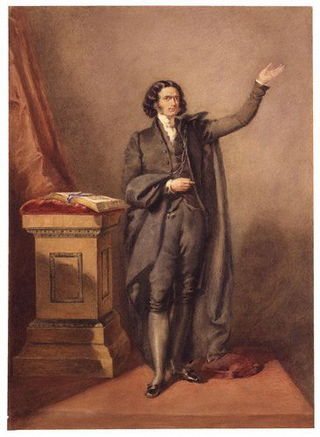
Edward Irving was a Scottish clergyman, generally regarded as the main figure behind the foundation of the Catholic Apostolic Church.
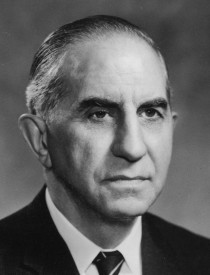
John Murray was a Scottish-born Calvinist theologian who taught at Princeton Seminary and then left to help found Westminster Theological Seminary, where he taught for many years. He was ordained in the Orthodox Presbyterian Church in 1937.
Thomas Chatterton Hammond was an Irish Anglican cleric whose work on reformed theology and Protestant apologetics has been influential among evangelicals, especially in Ireland, Australia and South Africa. He was also Grand Master of the Grand Orange Lodge of New South Wales.

Hugh Miller was a Scottish geologist, writer and folklorist.
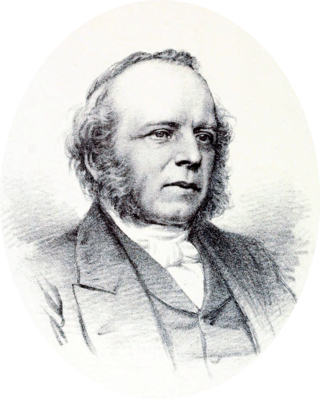
Andrew Alexander Bonar was a minister of the Free Church of Scotland, a contemporary and acquaintance of Robert Murray M'Cheyne and youngest brother of Horatius Bonar.
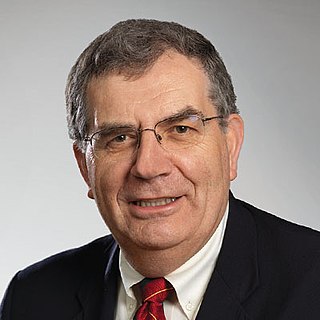
Sinclair Buchanan Ferguson is a Scottish theologian known in Reformed Christian circles for his teaching, writing, and editorial work. He has been Chancellor's Professor of Systematic Theology at Reformed Theological Seminary since 2017, commuting from Scotland, where he was an assistant minister at St. Peter's Free Church of Scotland, Dundee. He is currently a preaching associate at Trinity Church, Aberdeen.
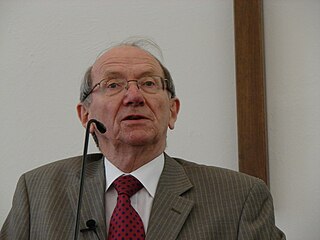
Iain Hamish Murray is a British pastor and author who co-founded the Reformed publishing house, the Banner of Truth Trust.
The Scottish pork taboo is a purported historical taboo against the consumption of pork amongst the Scottish people, particularly Highlanders. The phrase was coined by journalist Donald Alexander Mackenzie, who believed the aversion stemmed from an ancient taboo.
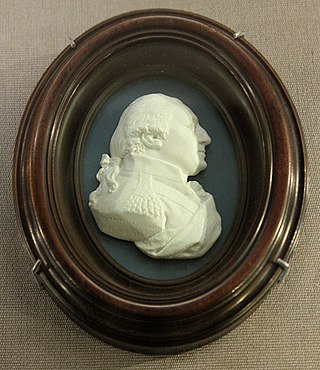
Archibald Campbell Fraserof Lovat, was British consul at Tripoli and Algiers, and later colonel of the 1st Inverness local militia. Upon the death of his brother, Simon Fraser (1726–1782), Archibald became the 20th MacShimidh (chief) of Clan Fraser of Lovat, and sat in the House of Commons from 1782 to 1784.

Sir Marcus Lawrence Loane was an Australian Anglican bishop. He was the Anglican Archbishop of Sydney from 1966 to 1982 and Primate of Australia from 1977 to 1982. He was the first Australian-born Archbishop of Sydney and also the first Australian-born archbishop in the Anglican Church of Australia. He was a prolific author and his works include several biographies.

Clan Maclachlan, also known as Clan Lachlan, Clann Lachainn (Argyll), and Clann Lachlainn, is a Highland Scottish clan that historically centred on the lands of Strathlachlan on Loch Fyne, Argyll on the west coast of Scotland. The clan claims descent from Lachlan Mor, who lived on Loch Fyne in the 13th century, and who has left his name upon the countryside he once controlled: places such as Strathlachlan, Castle Lachlan and Lachlan Bay. Tradition gives Lachlan Mor a descent from an Irish prince of the O'Neill dynasty, Ánrothán Ua Néill, son of Áed, son of Flaithbertach Ua Néill, King of Ailech and Cenél nEógain, died 1036. Clan Maclachlan has been associated with other clans, such as Clan Lamont, Clan Ewen of Otter, Clan MacNeil of Barra, and the MacSweens: as all claim descent from Anrothan O'Neill who left Ireland for Kintyre in the 11th century. From this descent the clan claims a further descent from the legendary Niall Noigíallach, High King of Ireland, who lived from the mid 4th century to the early 5th century.
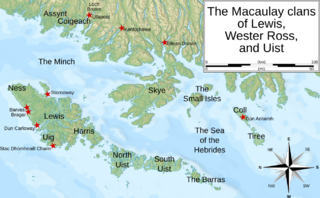
The Macaulay family of Uig in Lewis, known in Scottish Gaelic as Clann mhic Amhlaigh, were a small family located around Uig on the Isle of Lewis in the Outer Hebrides of Scotland. There is no connection between the Macaulays of Lewis and Clan MacAulay which was centred in the Loch Lomond area, bordering the Scottish Highlands and Scottish Lowlands. The Macaulays of Lewis are generally said to be of Norse origin because of the etymology of their surname and also because of the islands' Viking Age past. However, a recent analysis of the Y-DNA of men with Scottish surnames has shown that a large number of Hebridean Macaulays are of Irish origin. In the 17th century, however, tradition gave the Macaulays an Irish origin. By the end of the 16th century the dominant clan on Lewis was Clan Macleod of The Lewes. Other notable Lewis clans were the somewhat smaller Morrisons of Ness and the even less numerous Macaulays of Uig. The Macaulays were centred in the area surrounding Uig on the western coast of Lewis, and had a deadly, long-standing feud with the Morrisons, whose lands were located on the northern coast around Ness. Today the Lewis surname Macaulay is considered to be a sept name of the Macleods of Lewis. There are two other nearby clans of Macaulays who may, or may not, be connected to the Lewis clan—the Wester Ross Macaulays, and the Uist MacAulays.
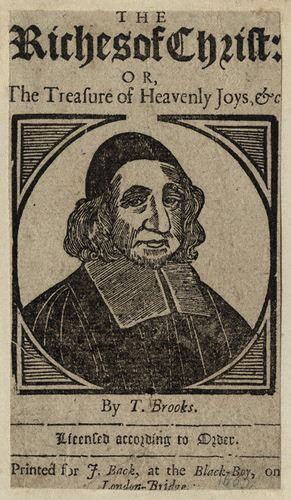
Thomas Brooks (1608–1680) was an English non-conformist Puritan preacher and author.

Glen Finglas is a glen in the Trossachs, in the Stirling council area of Scotland. It is an area of forest in Highlands of the former county of Perthshire, north of Brig o' Turk, close to Callander in Menteith. To the west is Loch Katrine.

Lauchlan MacLean Watt FRSE was the minister of Glasgow Cathedral from 1923–34, and the Moderator of the General Assembly of the Church of Scotland in 1933. He was a published poet and author, and a literary critic.

Lochalsh is a district of mainland Scotland that is currently part of the Highland council area. The Lochalsh district covers all of the mainland either side of Loch Alsh - and of Loch Duich - between Loch Carron and Loch Hourn, ie. from Stromeferry in the north on Loch Carron down to Corran on Loch Hourn and as (south-)west as Kintail. It was sometimes more narrowly defined as just being the hilly peninsula that lies between Loch Carron and Loch Alsh. The main settlement is Kyle of Lochalsh, located at the entrance to Loch Alsh, opposite the village of Kyleakin on the adjacent island of Skye. A ferry used to connect the two settlements but was replaced by the Skye Bridge in 1995.

Archibald Clerk (1813–1887) was a minister of the established Church of Scotland and one of the leading Gaelic scholars of the Victorian era.
John Kennedy was a Scottish minister of the Church of Scotland who served at Killearnan from 1814 until his death.
Derek Prime was a Scottish evangelical minister and author.
References
- ↑ The Happy Man: The Abiding Witness of Lachlan Mackenzie. The Banner of Truth Trust, Edinburgh. 1979. p. 13. ISBN 0-85151-282-8.
- ↑ Blackwood's Magazine . June 1819.
- ↑ The Happy Man: The Abiding Witness of Lachlan Mackenzie. The Banner of Truth Trust, Edinburgh. 1979. p. 248. ISBN 0-85151-282-8.
- ↑ The Happy Man: The Abiding Witness of Lachlan Mackenzie. The Banner of Truth Trust, Edinburgh. 1979. ISBN 0-85151-282-8.
- ↑ The Happy Man: The Abiding Witness of Lachlan Mackenzie. The Banner of Truth Trust, Edinburgh. 1979. pp. 238–241. ISBN 0-85151-282-8.